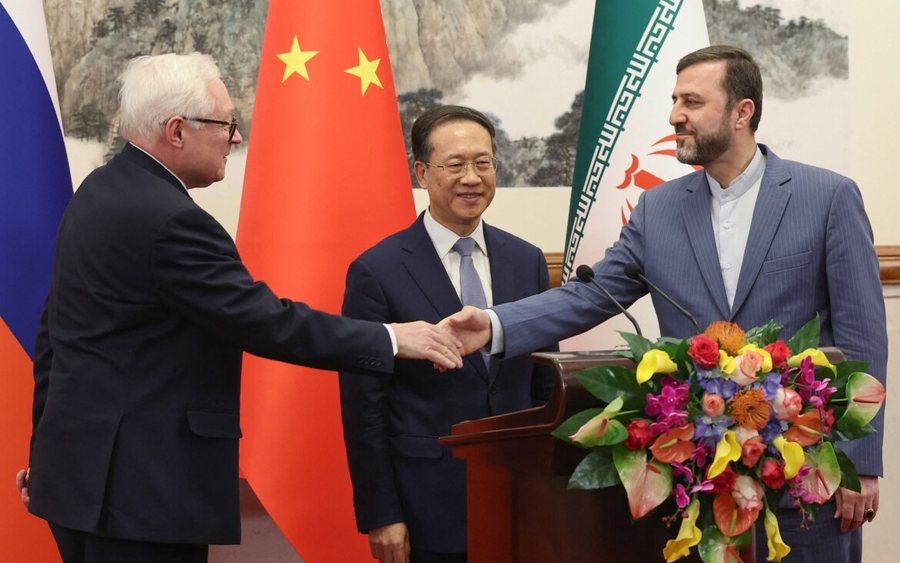
The war with Israel last month destroyed much of Iran's military leadership, weakened its air defenses and showed how fragile its strength was.
Within days, Israel achieved air superiority, paving the way for US airstrikes on the Islamic Republic's nuclear facilities.
But the war also tested the limits of Iran's alliance with Russia, which offered little more than diplomatic support to Tehran during the 12-day conflict, writes A2.
Now, with little trust in Moscow, Tehran is trying to strengthen its defenses, seeking help from China, in the hope that it will provide it with modern weapons.
However, he is facing obstacles and skepticism - which highlights his limited options and the depth of his strategic isolation.
Russia, a strategic partner only on paper
Despite a recently signed strategic partnership agreement and years of close cooperation, Russia's support for Iran during this crisis was largely rhetorical.
As the reformist newspaper Shargh wrote, "this alliance, at critical moments, is based more on shifting interests than on unwavering commitments."
Russian President Vladimir Putin condemned the US attacks, describing them as "unjustified".
He called for dialogue but did not pledge military assistance.
The Kremlin insisted that the partnership agreement has no provisions for military assistance in wartime.
In a post on X, former deputy speaker of Iran's Parliament, Ali Motahari, noted that Russia has refused to sell Iran the S-400 missile defense system, despite Tehran supplying it with drones for its war in Ukraine.
According to him, Russia's reluctance was due to concerns that Iran could use the S-400 system against Israeli aggression - which highlights the superficiality of the so-called strategic partnership that "Putin advertises."
Iran's efforts to purchase advanced Russian military equipment, including Sukhoi-35 (Su-35) fighter jets and Mi-28 attack helicopters, have also stalled.
"Apart from a few training aircraft, none of the promised equipment has been delivered," the Shargh newspaper wrote.
This pattern of disengagement has likely led Iranian officials and analysts to doubt Russia's reliability as an ally.
China's Reluctance
With Russia distracted and unreliable, there are reports from Iranian and Western media that Iran is seeking advanced military equipment from China, especially the Chengdu J-10C fighter jet, to strengthen its military.
Iran's air force is very old and lacks the necessary equipment to face a modern enemy.
Its fleet consists mainly of old American and Soviet aircraft, purchased before the 1979 Revolution, and many of them are kept in operation using parts taken from other aircraft, or with other improvised solutions.
The J-10C is a 4.5th generation, single-engine fighter jet equipped with advanced avionics, AESA radar, and the capacity to use PL-15 long-range missiles.
It is considered a credible - though not equal - challenger to Israel's advanced F-35I fleet.
Andrea Ghiselli, a lecturer at the University of Exeter and research leader at TOChina Hub's ChinaMed project, says China's lack of desire to supply Iran is very apparent.
"Beijing is trying to stabilize relations with Washington to buy time and increase technological and economic self-sufficiency," Ghiselli tells Radio Free Europe.
"This is more important than rebuilding the Iranian Air Force," he adds.
Experts also agree that China's relations with Iran's regional rivals influence its lack of desire to strengthen the Iranian military.
“China has acted as an economic or geo-economic actor in the Middle East,” says Hamidreza Azizi, a fellow at the German Institute for International and Security Affairs.
He tells Radio Free Europe that China values its relations with Iran's Sunni Arab neighbors in the Gulf Cooperation Council - Qatar, Saudi Arabia and the United Arab Emirates - who are critical energy suppliers and trading partners, but maintain cautious relations with Tehran.
Analysts agree that China's most effective way to support Iran is through continued oil purchases, which provide Tehran - which is under sanctions - with significant revenue.
Ghiselli says that for Beijing, maintaining access to energy and avoiding regional destabilization are more important than the potential benefits from selling advanced weapons to Iran.
Iran's strategic isolation
The events of the past few weeks revealed the depth of Iran's strategic isolation.
Both Moscow and Beijing put their own interests and relations with Iran's enemies first, neglecting formal alliance commitments.
As the Shargh newspaper writes, Russia's unwillingness to go beyond political statements has severely damaged its credibility as an ally, while China's policy suggests that any meaningful military support will remain out of reach.
Farzan Sabet, a researcher at the Geneva Graduate Institute, tells Radio Free Europe that Tehran "doesn't have good options" when it comes to foreign military partners.
Even if Tehran manages to buy fighter jets from China, it would need far more than it can afford to be able to maintain air superiority in future conflicts - at least in its own skies.
"These are very, very expensive. Since Iran is under sanctions, no one knows who will have the money to pay for them," says Sabet./ REL (A2 Televizion)











